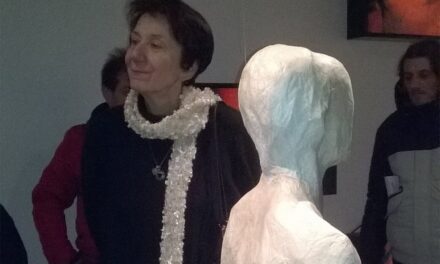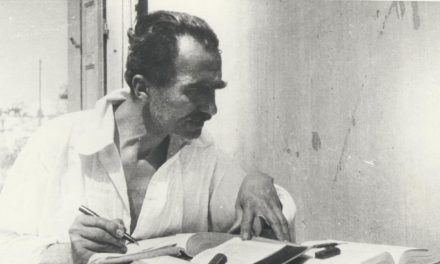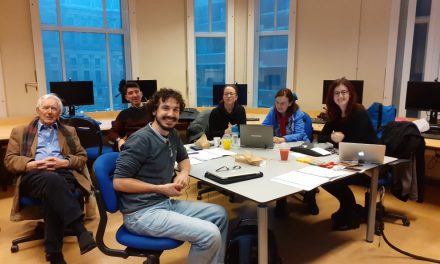Maria Nazos is a Greek-American poet raised in Athens. Kaveh Akbar chose her work as one of the 2022 Palette Poetry Contest winners. Her poetry, translations, and essays are published in The New Yorker, Copper Nickel, and elsewhere. She is the author of PULSE (Omnidawn 2026) and the translator of A Slow Horizon that Breathes (World Poetry Books, 202)3, a collection of poems from Greek poet Dimitra Kotoula. You can find her at www.marianazos.com.
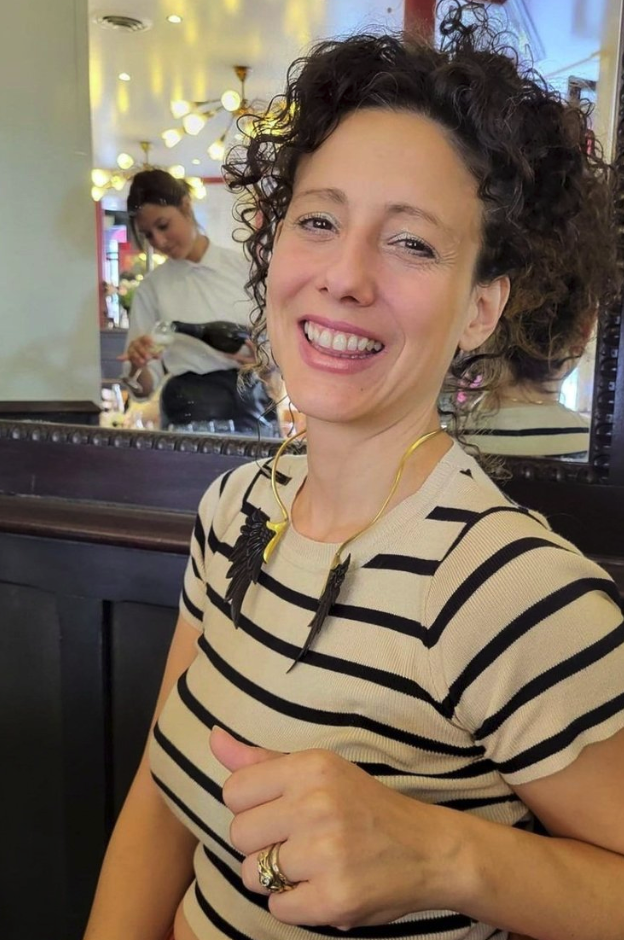
Your latest translation venture The Slow Horizon That Breathes by Greek poet Dimitra Kotoula was recently published by World Poetry Books. Tell us a few things about the book.
I can tell you many things about the book! The project began as an independent study with former United States Poet Laureate Ted Kooser. Ten years ago, when I was a Ph.D. student, he suggested I try my hand at translating. Acclaimed poet Alicia Stallings initially recommended Dimitra Kotoula. I can see why Alicia picked Dimitra; she remains a complex, strong, and unique poet and is among the best contemporary Greeks writing today.
Ten years later, an independent study with Ted became a full-blown book of my translated poems by Dimitra. Back then, I would have said you were crazy if you told me I’d embark on such a vast undertaking. Of course, in this present moment, I wouldn’t have it any other way.
What were the main challenges you were faced with during the translation of the book?
Relearning modern Greek was a substantial initial challenge; it quickly became a beloved endeavor, but the initial process was complex. As time passed, I became better acquainted with modern Greek and Dimitra’s one-of-a-kind turns of phrases, idioms, and subtle references to contemporary Greek culture. Before I knew it, I was a pro! Dimitra was always there to support me. I’d bet money that if you put one of Dimitra’s new and unfamiliar Greek poems before me, I’d understand her intentions and how to render them in accessible English.
Being a poet yourself, which are the main themes your poetry touches upon? Are there recurrent points of reference in your work?
Absolutely! I write a lot about the loss of those I love and don’t love anymore. Midwestern America and Greece also appear in my poems, as I grew up in both places. And I always find myself returning to writing a great deal about bars! I enjoy the social drinking culture and how people, including me, open up after a few beverages. The bar is a place of vulnerability and pain, and no matter how much I try to stray away from the topic in my poems, I always go back, just like the bars themselves. Politics will ALWAYS be a substantial poetic theme as well because the U.S. has sadly taken a dip into so much dysfunctional divisiveness and even white supremacy, no thanks to the Trump Administration and the ever-haunting notion that it may repeat itself.
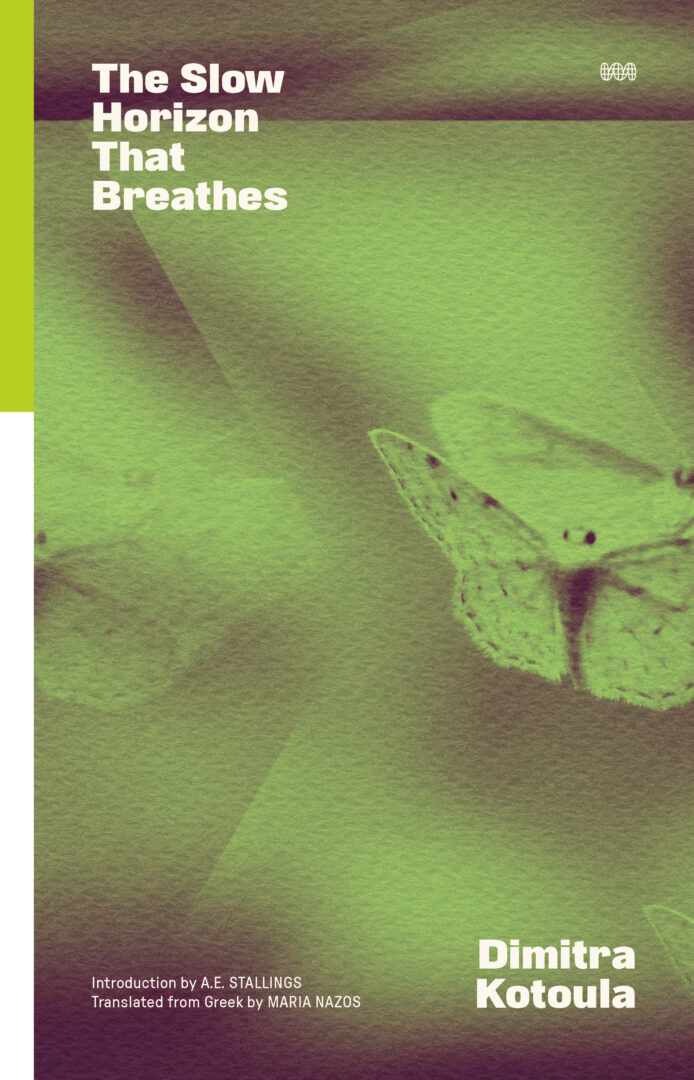
Most scholars reckon that the content of a book cannot be separated from the particularities of the language that gave it shape. In this respect, where does the role and responsibility of the translator lie? Can translation ever be unethical?
Yes. Of course, you can’t dial up Sappho or Cavafy on Zoom and ask them if you’re being ethical towards their work. Still, if you’re translating living poets, you should run the translations by the original author and ensure you’re doing justice to their words. As a translator, as Michael Heim said, you are the person in between. You’re in communion with your own work, biases, the source material, and the original writer. So, of course, you must consort with at least a few different trusted contacts, including the author, to ensure you enter and leave the poems as solid modern American English versions that preserve their original intent.
Would you agree with those who argue that if the writer is the protagonist, the translator is the invisible hero? What could be done to bring the work of translators to the forefront?
For one thing, we have to advocate for ourselves. It took me a while to understand how to do that. Ensure you’re being clear and even loud about your role as a translator. Don’t be shy; promote yourself, network, and meet other translators. I learned very early on that, as much as I hate tooting my own horn, nobody else will unless I am the first.
Could translation contribute to a better understanding between cultures, and translators could act as cultural ambassadors between countries?
Yes, all writing, especially poetry, especially translations of poetry, can shape how we see our own culture and those unfamiliar to us; otherwise, why would we do it? Any art can improve the world due to its sense of social responsibility. For instance, people aren’t generally cruel or violent. There are more good humans in this world than bad. We uphold ourselves to overall altruistic behavior, not simply because we don’t want to get into trouble. Humanity defaults toward doing and being good due to a moral code we uphold daily. Art can accomplish goals of moral unity across oceans, languages, and centuries – and it does every day!
*Interview by Athina Rossoglou
TAGS: LITERATURE & BOOKS | READING GREECE

